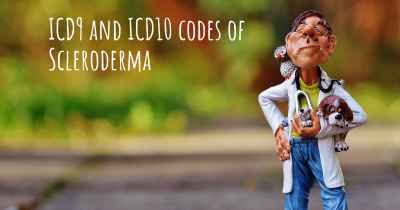9
What is the life expectancy of someone with Scleroderma?
Life expectancy of people with Scleroderma and recent progresses and researches in Scleroderma

Research still going on, I can't really say. But people are living with it having a normal life
Posted Apr 1, 2017 by Fashah 1150
Normally between 6 and 15 years. I am living with it for 42 years.
Posted Apr 1, 2017 by Milda 1000
This varies widely depending on the antibody-based disease variant. Patients with limited systemic scleroderma variants often lead relatively normal lifespans but with steadily increasing disability over time. Patients with diffuse variants have significantly reduced lifespans. Typical 10 year survival rates with diffuse variants is in the 60% range.
The most common causes of death in scleroderma patients is lung involvement followed by heart involvement. Kidney failure is less of an issue than it used to be because of the discovery that ACE inhibitors can be very effective in dealing with scleroderma renal crisis (SRC).
Recent research on autologous stem cell transplants (HSCT), a treatment where the immune system is first destroyed and then rebuilt from the patient's own stem cells, suggests that this may be more effective than conventional treatments in patients with rapidly progressing diffuse disease. However, even with optimum patient selection, there is about a 5% mortality rate for the procedure, which is why it is only being tried in patients with poor prognosis.
Recent research on therapeutic plasma exchange suggests that this may be an effective option but more research is needed to verify this.
The most common causes of death in scleroderma patients is lung involvement followed by heart involvement. Kidney failure is less of an issue than it used to be because of the discovery that ACE inhibitors can be very effective in dealing with scleroderma renal crisis (SRC).
Recent research on autologous stem cell transplants (HSCT), a treatment where the immune system is first destroyed and then rebuilt from the patient's own stem cells, suggests that this may be more effective than conventional treatments in patients with rapidly progressing diffuse disease. However, even with optimum patient selection, there is about a 5% mortality rate for the procedure, which is why it is only being tried in patients with poor prognosis.
Recent research on therapeutic plasma exchange suggests that this may be an effective option but more research is needed to verify this.
Posted Apr 4, 2017 by Choclit 1150
It really depends on the severity of their disease and how quickly it is progressing
Posted Mar 30, 2018 by Amy 2600
Life expectancy is full of mystery, even for those who do not have a Scleroderma label. Make the best of what you are able to do. Of course, 'tight skin' and inflexibility will impact those more who have lung or heart affected but speak to your doctor about ways to lessen the impact. I have no motility in my esophagus. I've learned to use 'gravity' to eat early and let gravity take my food down. This means, I eat before 7:00 pm I now have some lung and heart impact to my overall health and have been told someday (not today) I will need a heart valve replacement. Therefore, I keep a close tab on my heart health.
Posted Nov 21, 2018 by Juanita 1900
Translated from spanish
Improve translation
I do not know every case is a world
Translated from spanish
Improve translation
in general, the hope of life is decreased when complications occur lung or kidney, and at present the biological drugs have been shown useful in decreasing the severity of the complications of the disease...the problem is its high cost and the lack of coverage in many countries
Posted Feb 27, 2017 by cecilia miranda 1000
Translated from spanish
Improve translation
Depends on the degree of involvement and the organs involved.
I don't know that there is no important novelty
I don't know that there is no important novelty
Posted Mar 21, 2017 by Amparo 1000
Translated from spanish
Improve translation
Scientific breakthrough I don't know but the hope of life is great, I think that you can pass the 70 years of life
Posted Mar 23, 2017 by ana h 1400
Translated from spanish
Improve translation
Although there are no medical advances, or offers no hope to the patients, I recently found that a doctor Alfonso Valdivia of Mexico city promises a treatment based on minoácidos that improves the condition of life of the patients of scleroderma. Honestly we have not been able to wear it to my sister for lack of time and money, since the treatment ranges between $20 000 (MEXICAN PESOS).
Posted Apr 28, 2017 by Alma Olivia 1000
Translated from spanish
Improve translation
Depends on the type of scleroderma and the impact that you have made to your body.
Posted May 15, 2017 by Lucero 1050
Translated from spanish
Improve translation
Depends on how you evolve the disease and which organs are affected. Each case is different. You can go very fast or be years without developing any serious symptom.
Posted May 18, 2017 by Montse 1151
Translated from portuguese
Improve translation
The scientific advancement that we still don't know very serious bone marrow transplantation.
Posted Sep 30, 2017 by Carol 1000
Translated from spanish
Improve translation
According to information read in 2 five-year periods, the lungs collapse . After 3 years of suffering and having gone to a private physician and spending a fortune I went to the social security as a retiree that I am, and that is where I was diagnosed with in October 2017
Posted Nov 22, 2017 by Martín Luis Durán Salamanca 100








